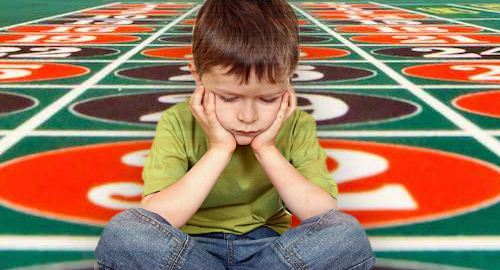 A new study has linked childhood stress to adult problem gambling behavior, further blurring the nature v. nurture debate.
A new study has linked childhood stress to adult problem gambling behavior, further blurring the nature v. nurture debate.
A new University of Wisconsin-Madison study involved 54 young adults aged 20 to 23 who participated in an earlier study when they were eight years old. That earlier study dealt with stress hormones, and the individuals selected for the followup study were an equal mix of kids from either the least or most stressed groups.
The kids who reported chronic and high levels of early life stress (ELS) had experienced deeply traumatic events, such as severe abuse or the violent death of a parent. The researchers wanted to see what effect this history had on the high-stressed group’s decision-making.
To determine whether the high ELS subjects’ brains handled this process differently than the low-stress group, the study asked participants to complete a series of gambling-themed tasks while magnetic resonance imaging (MRI) gear measured their brain activity.
The researchers found that their high-ELS subjects “consistently placed large bets on trials that had a low chance of winning, failed to place large bets on trials with a good chance of winning, and—perhaps most importantly—failed to change this behavior after repeated losses.”
Subjects with higher ELS “appeared unable to effectively learn from loss trials to improve their subsequent risk assessments,” while the low ELS group “benefited more from their experiences and began to place lower bets on trials with high probability of loss.”
The brains of these high ELS subjects showed less activation during the anticipation of both potential rewards and potential losses, but showed greater activation than low ELS subjects in reaction to actual losses.
The researchers theorized that “both poor initial learning of, and heightened emotional reactivity to, loss might leave high-stress-exposed individuals less able to modify and better use the anticipation of (and motivation to avoid) subsequent potential future losses.”
The researchers noted that individuals subjected to high ELS “are likely to encounter cumulative stressors throughout their lives.” A recalculation of the results based on the subjects’ reported current life stress found that brain activity was “not significantly correlated with levels of current life stress” and that “the measures of childhood stress contributed variance above and beyond the measures of current life stress.”
Similar studies in the UK found significantly higher proportions of problem gamblers had experienced violence in the home or other childhood trauma than non-problem gamblers. Numerous studies have found problem gamblers’ brains to have more difficulty assessing and adapting to risk, while also showing heightened emotional responses to negative outcomes.





